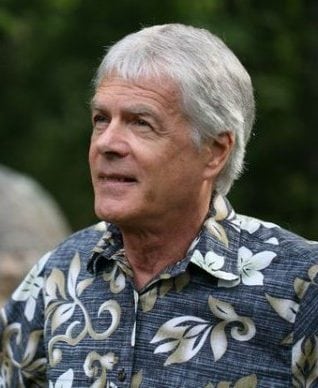Peter Sale: The Elephant in the Room
Prof Peter F. Sale
Coral Reef Ecologist

Assistant Director, Institute for Water, Environment and Health, United Nations University,
Hamilton, Ontario, Canada
February 2011
There are now three times as many people on earth as when I was born. Some of these live in developed countries and consume far more than individuals consumed when I was born. Many more live in rapidly developing countries such as India and China and their combined use of resources is rising rapidly. The world population is expected to reach 9.2 billion by 2050, and the majority of these people will live in coastal communities in developing countries. Yet policy discussions rarely admit that this elephant is at the center of our problem with coral reefs. In addition to over-fishing, our growing coastal populations degrade coral reefs through inappropriate coastal development and pollution, and all of us contribute through climate change effects. The major problem for coral reefs is that our growing demands exceed what can be supplied.
Let’s acknowledge this elephant exists, and set about taming it. A future with fewer people and with higher quality of life is attainable, but not if we never discuss it. That future could include coral reefs.
Read more…
Book:
ABSTRACT: Coral reefs are on track to become the first ecosystem actually eliminated from the planet. So says leading ecologist Peter F. Sale in this crash course on the state of the planet today. Sale draws from his own extensive work on coral reefs, and from recent research by other ecologists, to explore the many ways we are changing the earth and to explain why it matters. Weaving his own firsthand field experiences around the world into the narrative, Sale brings ecology alive while giving a solid understanding of the science at work behind today’s pressing environmental issues. He delves into topics including overfishing, deforestation, biodiversity loss, use of fossil fuels, population growth, and climate change while discussing the real consequences of our growing ecological footprint. Most importantly, this passionately written book emphasizes that a gloom and doom scenario is not inevitable, and as Sale explores alternative paths, he considers the ways in which science can help us realize a better future.
Click here to purchase “Our Dying Planet: An Ecologist’s View of the Crisis We Face”
Journal article:
ABSTRACT: Globally, our current management of coral reefs is inadequate and becoming more so as we place new and greater stresses on these ecosystems. The future looks very dim, and yet we have the capacity to do a far more effective job of reef management if we want to. Making substantial improvements to the condition of these enormously valuable coastal marine ecosystems does not require new scientific discoveries, but a new commitment to apply the knowledge we already possess to manage our impacts so that sustainability becomes possible.

